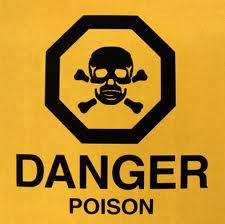Article
Poisons and Pets
Poisons and Pets
There are many substances that can cause our pets to become ill. Some may cause just minor stomach upset, while others lead to life threatening organ failure. This handout reviews some of the most commonly encountered poisonings we treat in our hospital. If you believe your pet has been exposed to a toxin, do not wait, seek a veterinarian’s help immediately. In many cases prompt treatment makes the difference between a happy outcome and a deadly one.
Over the counter pain medications
No one wants their pet to experience pain or suffering. Sometimes in an effort to make our pets more comfortable, some owners are tempted to give their pets the same over the counter medications they take themselves. While you may be trying to help your pet, the consequences of such action may be disastrous. Pets are not people. Some medications that people can metabolize safely cause serious harm to dogs and cats. Medications such as Advil (ibuprofen), Tylenol (acetaminophen), Aleve (naproxen) and aspirin can lead to fatal stomach bleeding, liver failure and/or kidney failure even in small doses. Unfortunately you may not see these problems develop immediately after giving the medication so you are unaware of the damage you have caused.
DO NOT EVER give your pet a medication without consulting with a licensed veterinarian first. If it is after regular business hours, and your regular veterinarian is closed, call an emergency veterinary facility. They will be happy to answer your questions so you don’t make a life threatening mistake.
Antifreeze (ethylene glycol)
Antifreeze has a sweet taste to dogs and cats, and they may lick it off the ground. As little as one teaspoonful (easily available from a radiator boil over) can lead to irreversible kidney damage and death in a small dog or cat.
Chocolate
As little as one ounce of unsweetened (baker’s) chocolate may poison a small dog. Milk chocolate isn’t as toxic, and if ingested in reasonable quantities there is no cause for alarm. Many dogs, however, ingest unreasonable quantities and may be poisoned. Chocolate poisoning can lead to heart problems and liver failure.
Pest control supplies
Pest control supplies, such as insecticides, snail bait and rat/ mouse bait can lead to fatal toxicities in both dogs and cats. Snail bait ingestion leads to liver failure. Whereas rat/mouse bait ingestion inhibits blood clotting ability, so victims slowly bleed to death internally.
Over the counter Flea medications and shampoos
Over the counter flea/tick products containing pyrethrins are dangerous to cats. Toxicity can develop over time or after just one application. Affected cats may develop tremors, full body seizures, disorientation, hyper salivation, depression and difficulty breathing. Your veterinarian is the best source of information regarding what products are safe to use on your pet for flea and tick control.
Grapes and Raisins
Grapes and raisins make healthy snacks for people, but keep them away from your pets. Grapes and raisins can cause kidney damage and failure in dogs, even in small amounts.
Xylitol
Xylitol is a white crystalline substance that looks and tastes like sugar. It is used as a sugar substitute and can be found in sugar-free candy, gums and other products. In humans, xylitol has little to no effect on plasma insulin or glucose levels, but in dogs xylitol is a strong promoter of insulin release and can cause severe hypoglycemia with ataxia, collapse and seizures. Xylitol can also lead to life threatening heart arrhythmias and liver failure.
Send us a Message
Visit Our Office
1208 E. Ash St, Piqua, OH 45356
Call Us Today
(937) 773-8060
